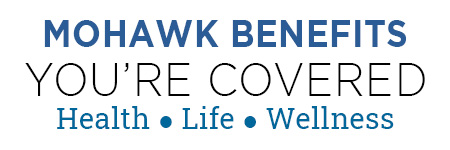Know the Lingo
Brush up on some key terms that go along with our health and financial benefits offered through Mohawk Industries.
 Medical
Medical
Coinsurance - the insured individual’s share of costs for a covered health care service. This is calculated as a percentage (e.g., 20 percent) of the allowed amount for the service after the deductible is met. The Company pays the rest of the allowed amount.
Deductible - the amount an individual or family must pay for health care services before the Company begins to pay for services. The deductible may not apply to all services.
In-Network – benefits associated with a health insurance carrier’s network of doctors, hospitals, clinics and labs that accept allowed amounts as payment in full. Members pay lower out-of-pocket costs when they use these providers.
Out-of-pocket costs - costs you pay before your insurance begins to pay its share (your deductible, copayments, coinsurance, and your out-of-pocket maximum).
Out-Of-Network - benefits associated with non-contracted health care providers. Members may pay higher out-of pocket costs for these services and may have to file a separate claim.
Out-Of-Pocket Maximum (OOP Max) - the amount an insured person will have to pay in out-of-pocket costs within a policy period. Health insurance will begin paying 100 percent of health care costs after the out-of-pocket limit has been reached. Each plan has limits and exclusions not included in the out-of-pocket limit. Premiums you pay from your paycheck are not applied to the out-of-pocket limit.
Premiums - the monthly cost you pay for health insurance. Premiums are deducted directly from your paycheck.
Reasonable and customary charges - The amount paid for a medical related service in a geographic area based on what providers in the area usually charge for the same or similar medical service.
 Financial
Financial
401(k) - retirement account that an employee may contribute money through a pretax payroll deduction. When you withdraw money from your 401(k), you will pay taxes on amounts you withdraw.
Roth 401(k) - retirement account that an employee may contribute money through an after-tax payroll deduction. It grows tax deferred. When you withdraw money from your Roth 401(k), you will not pay any taxes.
Beneficiary - a person or persons you designate to receive funds or other property under a will, trust, insurance policy, 401(k), etc upon your death.
Health Savings Account – a savings account that is used with a high-deductible health plan. Contributions to the account are tax-free. Funds used for eligible medical expenses are tax-free.
Flexible Spending Account - a reimbursement account that allows employees to contribute money through payroll deduction on a pre-tax basis to pay for eligible dependent care expenses such as day care, preschool, after-school care and elder care.
Long-Term Disability - an insurance policy that provides income protection in the event that he/she is unable to work due to illness, injury or accident for a period longer than 90 days. Dependent Care
Short-Term Disability - income for an employee if he/she becomes unable to work due to illness or injury for a period of 90 days or less.
